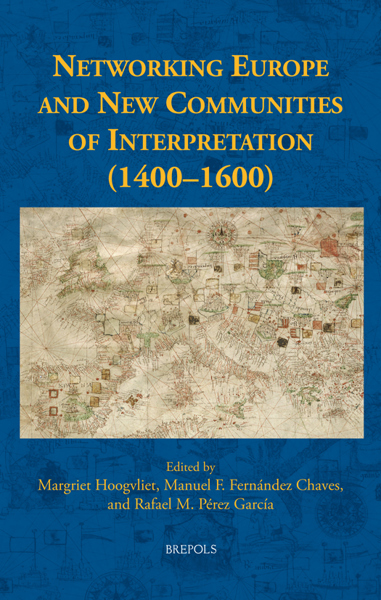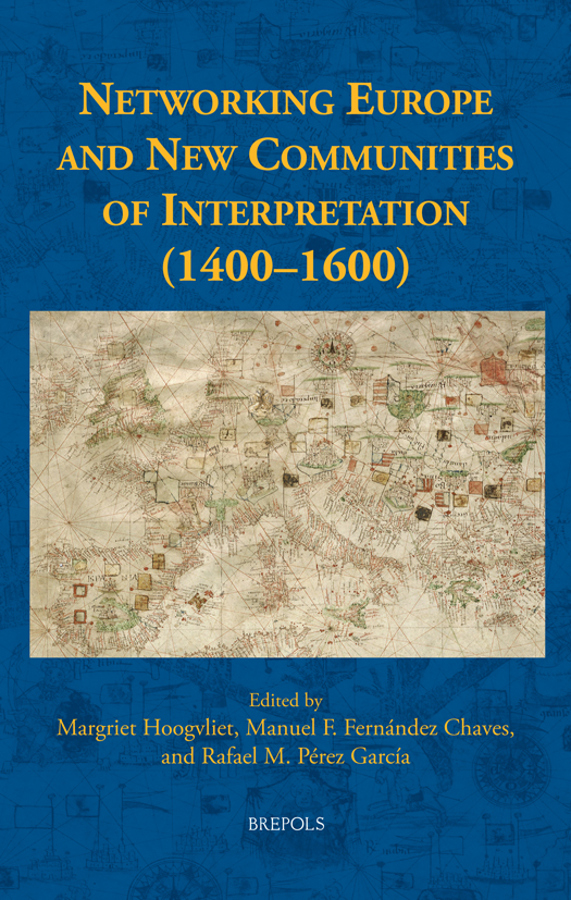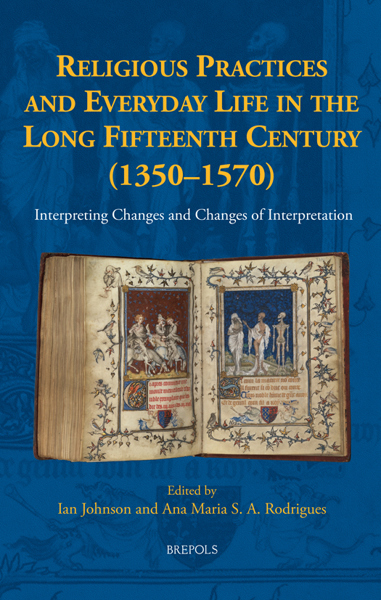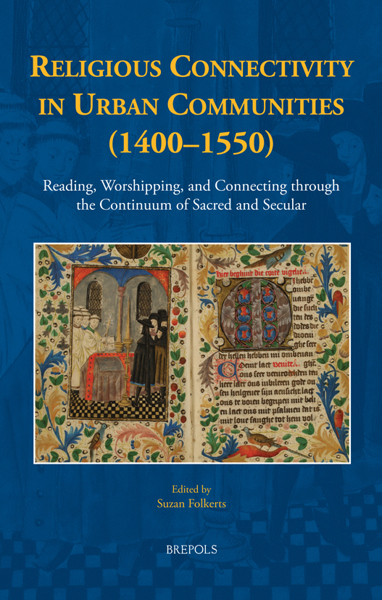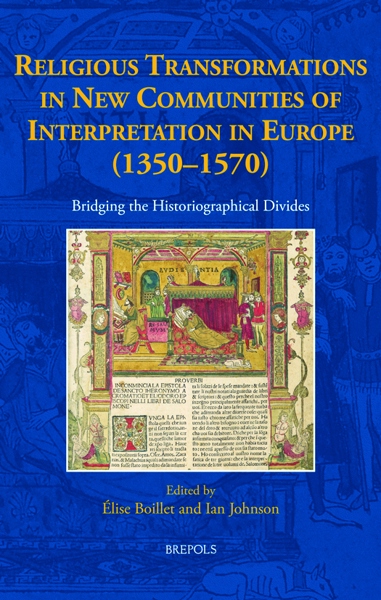
Networking Europe and New Communities of Interpretation (1400–1600)
Margriet Hoogvliet, Manuel F. Fernández Chaves, Rafael M. Pérez García (eds)
- Pages: 247 p.
- Size:156 x 234 mm
- Illustrations:6 b/w, 1 tables b/w., 3 maps b/w
- Language(s):English
- Publication Year:2023
- € 75,00 EXCL. VAT RETAIL PRICE
- ISBN: 978-2-503-60621-7
- Hardback
- Available
- € 75,00 EXCL. VAT RETAIL PRICE
- ISBN: 978-2-503-60622-4
- E-book
- Available
Reconstructs late medieval and early modern European networks of knowledge exchange by exploring how religious ideas and strategies of transformation ‘travelled’ and were shared in European and Transatlantic cultural spaces, with a focus on religious texts in Europe’s vernaculars and on the agency of the laity in ‘new communities of interpretation’. After theoretical reflections on connectivity and networks, the chapters address ‘European Connections’, ‘Exiles, Diasporas, and Migrants’, and ‘Mobility and Dissemination’.
"Ein gelungenes Buch." (Eef Overgaauw, in Deutsches Archiv für Erforschung des Mittelalters, 80(1), 2024, p. 416)
"There is much to be learnt from the articles in the volume..." (Koen Goudriaan, in Church History and Religious Culture, 104, 2024, p. 278)
Margriet Hoogvliet (University of Groningen) is a specialist in the field of biblical and religious reading cultures of lay people living and working in the towns of late medieval France.
Manuel F. Fernández Chaves (University of Seville) studies merchants and mercantile culture in the sixteenth and seventeenth centuries, their participation in the global exchange of commodities, and their role in the slave trade.
Rafael M. Pérez García (University of Seville) specialises in cultural and religious history in sixteenth-century Spain, as well as social history, with a special focus on social minorities (Moriscos, slaves).
Long-distance ties connecting Europeans from all geographical corners of the continent during the fifteenth and sixteenth century facilitated the sharing of religious texts, books, iconography, ideas, and practices. The contributions to this book aim to reconstruct these European networks of knowledge exchange by exploring how religious ideas and strategies of transformation ‘travelled’ and were shared in European and transatlantic cultural spaces. In order to come to a better understanding of Europe-wide processes of religious culture and religious change, the chapters focus on the agency of the laity in ‘new communities of interpretation’, instead of intellectual elites, the aristocracy, and religious institutions. These new communities of interpretation were often formed by an urban laity active in politics, finance, and commerce. The agency of religious literatures in the European vernaculars in processes of religious purification, reform, and innovation during the long fifteenth century is still largely underestimated. ‘Networking Europe’ aims to step away from studying ‘national’ textual production and consumption by approaching these topics instead from a European and interconnected perspective. The contributions to this book explore late medieval and early modern networks connecting people and transporting texts following three main axes of investigation: ‘European Connections’, ‘Exiles, Diasporas, and Migrants’, and ‘Mobility and Dissemination’.
Introduction: Networking Europe and New Communities of Interpretation — MARGRIET HOOGVLIET, MANUEL F. FERNÁNDEZ CHAVES, and RAFAEL M. PÉREZ GARCÍA
Transnational History and Social Network Theory: A Brief Introduction to Theory and Terminology — SUZAN FOLKERTS and MARGRIET HOOGVLIET
Francisco de Osuna’s Tercer Abecedario Espiritual and the Medieval Mystical Tradition in Western Europe — RAFAEL M. PÉREZ GARCÍA
The Sixteenth-Century Polish Protestant Martyrology and its Latin Sources — MIROSŁAWA HANUSIEWICZ-LAVALLEE
(Re-)Constructing a Community of Readers: The Image of the Laity in Books Printed in Delft (1477–1500) — MARCIN POLKOWSKI
Spanish Merchants and Dissidents outside Spain in the Sixteenth Century — IGNACIO GARCÍA PINILLA
The Library of the Pious House and Chapel of Saint Andrew of the Flemish Nation in Seville under Philip V — MANUEL FERNÁNDEZ CHAVES
Business Is Business: Book Merchants, Printers, and the Spanish Inquisition during the Sixteenth Century — NATALIA MAILLARD ÁLVAREZ
The Colony of the Republic of Ragusa Merchants in Belgrade in the Sixteenth Century and their Printing Press — VLADIMIR ABRAMOVIĆ
The Spiritual Road: European Networks and Pilgrim Travels from Northern France and the Low Countries to Rome, Venice, and Santiago (Late Fifteenth–Early Sixteenth Century) — MARGRIET HOOGVLIET
